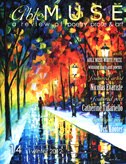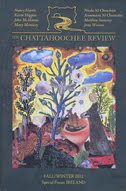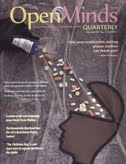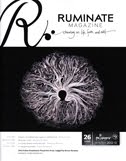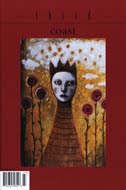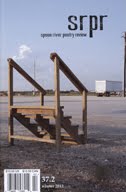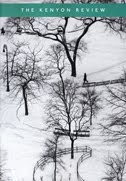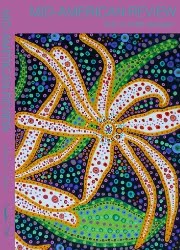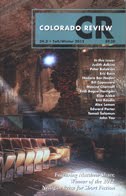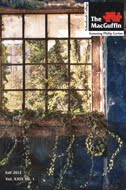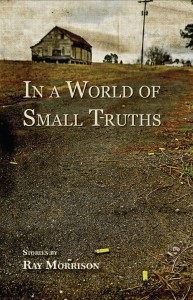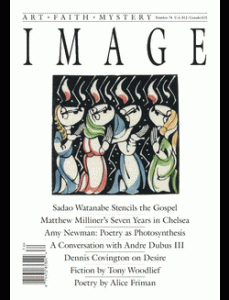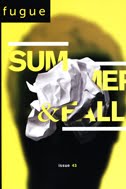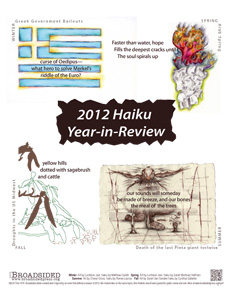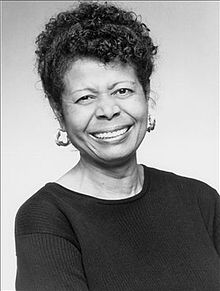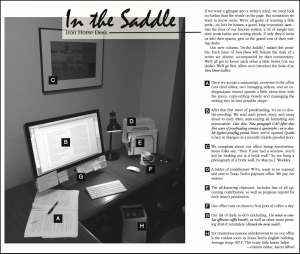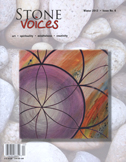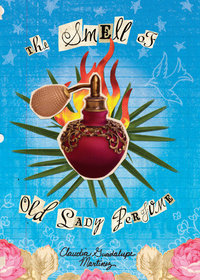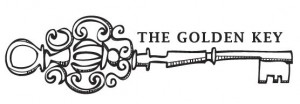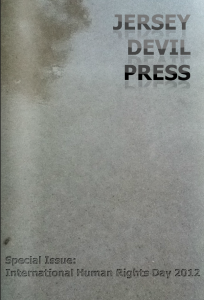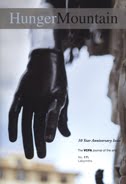“Researchers at the University of Liverpool found the prose of Shakespeare and Wordsworth and the like had a beneficial effect on the mind, providing a ‘rocket-boost’ to morale by catching the reader’s attention and triggering moments of self-reflection.”
Able Muse Contest Winners – 2012
Congratulations to the 2012 Able Muse Contest Winners. The Write Prize was judged by Ellen Sussman (fiction) and John Drury (poetry). The Muse Book Award was judged by Mary Jo Salter.
2012 Able Muse Write Prize
Fiction Winner
Adrianne Aron: “Random Sample”
Poetry Winner
John Beaton: “Murmuration”
Second Place
Leonard Kress
Finalists
John Beaton
Bruce Berger
Thomas Carper
Susan Cohen
Stephen Harvey
Susan McLean
Richard Meyer
Jeanne Wagner
Sarah White
2012 Able Muse Book Award
Winner
Frank Osen: Virtue, Big as Sin
Finalists
Sass Brown: USA-1000
Ellen Kaufman: House Music
Carol Light: Heaven from Steam
Richard Newman: All the Wasted Beauty of the World
Stephen Scaer: Pumpkin Chucking
Elie Wiesel Award Acceptance Recording
The Kenyon Review selected Elie Wiesel as the winner of the 2012 Kenyon Review Award for Literary Achievement. “Wiesel is the author of more than fifty books, most famous among them his haunting work Night. His writing deals with the moral imperative of all people to fight hatred, racism, and genocide. He is a Holocaust survivor and a Nobel Peace Prize Laureate. Wiesel accepted the Kenyon Review award in New York City on Nov. 8.” The Kenyon Review has made available on its website: a recording of Roger Rosenblatt’s remarks; a recording of Wiesel’s Nov. 8th acceptance speech; a short reading by Natalie Shapero and Elizabeth Lindsey Rogers, the current Kenyon Review Fellows; a link to c overage (with photos) of the 2012 event by Bloomberg News.
Ninth Letter News
With the newest print version of Ninth Letter, the editors announce some very exciting news. In addition to the two print issues a year, there will also be a web version. The inaguaral web edition is now online, featuring short stories and poetry from creative writing students across the country.
Ninth Letter will also be putting forth an iPad app. This will feature selected works from the current issue but will also include selections from the archives and select writing only available on the app subscription.
And lastly, as part of celebrating their ten year anniversary, Ninth Letter will be sponsoring their first ever annual Literary Prizes. Scheduled for spring, they will offer awards in fiction, creative nonfiction, poetry, and literature in translation. Please visit ninthletter.com/contest for more details. Contest submissions open in march.
Ireland Focused Issue
The Chattahoochee Review‘s Fall/Winter 2012 has a special focus: Ireland. Editor Anna Schachner introduces the issue by saying that, “It was through John Fairleigh of the Stewart Parker Trust that we were able to highlight contemporary Irish drama, for he found us quite a few excellent plays, leaving us to choose the two whose powerful, raw language most pulled us in as readers. Meanwhile, The Stinging Fly, an Irish journal after our own literary heart, graciously helped spread the word . . . The Munster Literature Centre and the Irish Writers’ Centre referred us to writers and rallied our efforts . . . Such collaboration was, and is, a beautiful thing–I like to think in keeping with this issue.”
The issue includes work from Fi
Student Scholarships for CNF Conference
River Teeth: A Journal of Nonfiction Narrative is offering undergraduate and graduate student scholarships to attend their 2nd annual conference, May 17-19 in Ashland, Ohio. Students must be currently enrolled in a writing program. The scholarship includes registration fees; other expenses (travel, room, board) are the responsibility of the scholarship recipient. Deadline for application is March 1, 2013.
Brainstorm Poetry Contest
Open Minds Quarterly print their Fall 2012 issue with the honorable mentions of the Brainstorm Poetry Contest, which was held in early 2012. The Spring 2012 issue includes the first, second, and third place winners (D. Brian Anderson’s “To Sylvia Plath,” Donald W. Boyles “To My Father,” and Kristina Morgan’s “Excerpt from Shade“).
Honorable Mentions
Andrew Boden: “Ladybugs, Electric”
April Bulmer: “Reta”
D. Brian Anderson: “Moving Day”
New Publisher on the (Lit) Block: Dinah Press
Dinah Press recently announced its publishing debut. Based in Los Angeles, Dinah is an editorial collective with a core group of permanent editors. Authors published by the press are invited to serve as guest editors for the year following their publication.
The goal of the new press is to highlight work from underserved groups. According to their FAQ page, they will publish “fiction, nonfiction, and poetry by women of color, trans people, people with disabilities, members of colonized peoples, and other talented writers whose work has been deemed ‘unmarketable’ by mainstream publishers.”
Dinah also stresses the communal nature of writing and publishing. “In building solidarity with individuals across communities and letting writers control the production of their work, we strive to break down the idea that writing is a solitary, isolated, and privileged act, or that publishing is necessarily hierarchical. Writing—especially when one’s voice is not valued in mainstream society—is a necessity, not a luxury.”
In the coming months, Dinah Press will begin to accept submissions, and then they will read them year-round. In the meantime, they have announced their first two titles: nomad of salt and hard water, poetry from Cynthia Dewi Oka, and Other Life Forms, a novel by Julia Glassman.
Welcome, Dinah Press!
Arc Virtual Poet-in-Residence
The Arc Poetry Soci
Kalos Foundation Visual Art Prize
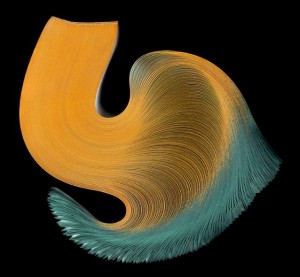 Ruminate Magazine‘s winter issue features the winners of the Kalos Foundation Visual Art Prize. The juror, Bruce Herman, said he was “impressed by the consistently high quality” of all the entries. “In the end,” he says, “I had to go with a gut-level set of choices—a visceral response based upon forty years as a practitioner and professor of art. I attempted to choose the three winning artists from the different stylistic and theoretical contexts represented in the fifteen finalists.”
Ruminate Magazine‘s winter issue features the winners of the Kalos Foundation Visual Art Prize. The juror, Bruce Herman, said he was “impressed by the consistently high quality” of all the entries. “In the end,” he says, “I had to go with a gut-level set of choices—a visceral response based upon forty years as a practitioner and professor of art. I attempted to choose the three winning artists from the different stylistic and theoretical contexts represented in the fifteen finalists.”
First Place
Laura Hennessy
(one piece from her collection is featured to the right, courtesy of laura-hennessy.squarespace.com)
Second Place
Zacheriah Kramer
Honorable Mention
James Hapke
Finalists
Jason Ackman
Stephen Mead
Susan Hart
Austin Parkhill
Sueme Jeon
Julie Quinn
Frank Krifka
Sue Gyeong Syn
Olga Lah
Crystal Wagner
Evan Mann
Derek Wagner
Writing in the issue comes from Richard Cole, Michelle Regaldo Deatrick, Joshua Robbins, Kathleen Henderson Staudt, Kait Burrier, Mary Jo Balistreri, Julie Hensley, David Oestreich, Renee Emerson, Don Thompson, Scott Cameron, Luci Shaw, Diane Scholl, Joey Locicero, Jean Tucker, Heather M. Surls, Shannon Skelton, Paul Stapleton, and Linda McCullough Moore.
Third Coast Fiction and Poetry Prizes
SRPR Editors’ Prize Winners
SRPR (Spoon River Poetry Review) puts out the Winter 2012 issue with the winning selections from the 2012 Editors’ Prize. The judge, David Baker, writes that the winning poem is “both of subtle depth and overt wit, managing the difficult combination admirably throughout its forty-five lines.”
First Place
William Stobb: “A Moment for Authentic Shine”
Runner-Up
Sarah Sousa: “The way you don’t have to see”
Honorable Mention
Aviva Englander Cristy: “The Accuracy of String and Measure”
Anna Marie Craighead-Kintis: “Honky”
Veronica Patterson: “The Etymology of Intersect”
The issue also showcases new work by the featured poet, Linda Gregerson, followed by an interview with her. Other contributors include Michele Battiste, Joanna Cattonar, Stephen Massimilla, Gabriel Gudding, Jack Collom, John Fenlon Hogan, Jennifer Militello, Laynie Browne, Gabriel Welsch, Jonathan Skinner, Tyler Mills, Cynthia Cruz, and more.
Online Journal :: Peer English
Peer English (ISSN 1746-5621) is a refereed, open-access online journal produced by members of the School of English. Issued once a year since 2006, its remit is to publish leading research from academics at the very beginnings of their careers (graduate study, post-doctoral research) through to those already established within the community. This approach also includes the notion of ‘work in progress’ and the editors welcome contributions of high academic standards from those currently involved in active research, be they doctoral candidates or Heads of Departments. More information is available at the English Association website.
Published annually, Peer English embraces not only the full range of subject coverage within the field of English Studies, but also the increasingly wide range of approaches and perspectives that can be brought to bear upon the discipline. We welcome, therefore, both traditional and modern approaches to the field, from close critical readings of literary texts, to interdisciplinary approaches or cross-subject analyses.
The deadline for submissions for 2013 is 31 August 2013. A style sheet for the journal is available by request.
The Kenyon Review vs. KROnline
Editor David H. Lynn, in the current issue of The Kenyon Review, says that there has been some confusion about the different formats now available for The Kenyon Review. The digital age is making more opportunities for more literature to be available. At one point, Lynn said that they had to decline some submissions that they wanted to publish. This is one main reason that they started looking down other avenues.
Kindle Version: The Kenyon Review is available through Amazon as a Kindle version. This is essentially a replica of the traditional print version of the journal. It is available for only 99 cents a month.
KROnline: This version is completely free at kenyonreview.org and offers fiction, poetry, creative nonfiction, and book reviews not found in print or in the Kindle version. Because it is faster to publish on the web, some of these contributions are more timely. Lynn explains, “Pieces may also be shorter, more experimental—more ‘out there.'”
AWP Announces Finalists for 2013 Small Press Publisher Award
AWP has announced the finalists for this year’s annual Small Press Publisher Award. AWP confers the award annually to honor small presses and their contributions to literary culture; in even years the award is given to a literary journal, and in odd years to a publisher. Each award includes a $2,000 honorarium and an exhibit booth at the AWP annual conference. The winning press will be announced at the Opening Night Awards Celebration at this year’s AWP Conference in Boston on Wed., March 6. Tickets to the invitation-only ceremony will be sent to invitees in mid-January.
This year’s finalists are:
Bellevue Literary Press, a project of the NYU School of Medicine and the first and only nonprofit press dedicated to literary fiction and nonfiction at the intersection of the arts and sciences. Bellevue’s award-winning titles include Paul Harding’s Tinkers, recipient of the Pulitzer Prize in Fiction, and Michelle Latiolais’s Widow: Stories, a best book of the year from Library Journal and the San Francisco Chronicle.
Coffee House Press, a Minneapolis-based press founded in 1984 by Allan Kornblum. Coffee House has published hundreds of titles in fiction, nonfiction, and poetry, including the recent titles Kind One by Laird Hunt, The Iovis Trilogy by Anne Waldman, Leaving the Atocha Station by Ben Lerner, and Netsuke by Rikki Ducournet.
Red Hen Press, founded in Los Angeles in 1994 by Kate Gale and Mark Cull. The press houses the imprints Arktio Books and Boreal Books; issues several literary awards each year, including the Benjamin Saltman Poetry Award and the Letras Latinas Poetry Prize; and sponsors an outreach program, Writing in the Schools. Red Hen’s authors include John Barr, Douglas Kearny, Eva Saulitis, and Los Angeles Poet Laureate Eloise Klein Healy.
Sarabande Books, based in Louisville and founded in 1994 by poets Sarah Gorham and Jefferey Skinner. Sarabande’s numerous award-winning writers include Lydia Davis, author of The Cows, Elena Passarello, author of Let Me Clear My Throat, Cleopatra Mathis, author of Book of Dog, and Ryan Van Meter, author of If You Knew Then What I Know Now.
“We are excited to present this new award, as the best small press literary publishers often go under-recognized in the publishing world,” said Christian Teresi, AWP’s conference director. “We look forward to acknowledging the outstanding work of independent magazines and presses at our conference for many years to come.”
Congratulations to all the deserving nominees!
Free Online Poetry Writing Class
The International Writing Program of the University of Iowa is presenting a free, online, seven-week poetry writing course in February. This course is “designed for advanced writers with an active commitment to reading poetry and refining their craft, though no previous experience is required.” The class is limited to 15 participants, and applications must be sent by January 28th. For sign up information, visit their Facebook page.
The Facebook page already shows 27 people “going,” so either the program will be extending its offering, or they may be some disappointed poets. Either way, it would be good to send your information along to IWP so they know of your interest for future offerings.
Mid-American Review Award Winners
Mid-American Review‘s most recent issue features the winners of several competitions and awards:
The 2011-12 Sherwood Anderson Fiction Award
Winner: Kyle Mellen – “Lighting in You a Tremendous Fire”
Editors’ Choice: Todd Seabrook – “The Elf”
The 2011-12 James Wright Poetry Award
Winner: Sarah Rose Nordgren – “When You Are Dead”
Editors’ Choice: Jonathan Rice – Two Poems
2012 Fineline Competition
Winner: Diane Seuss – “I emptied my little wishing well of its emptiness”
Editors’ Choice: Heather Cox – Two Selections
Editors’ Choice: Richard Garcia – “The Expert”
Editors’ Choice: Lauren Jensen – “Neighbors”
Editors’ Choice: Alexandra Sadinoff – “Symmetry Majors”
Nelligan Prize for Short Fiction
The Nelligan Prize for Short Fiction, established to honor Liza Nelligan, is now in its ninth year. Featured in the Colorado Review‘s Fall/Winter issue, winner Matthew Shaer’s story “Ghost” was select by the final judge Jane Hamilton. Here is what she has to say about the story:
“This story is tightly packed—it has a great deal of the characters’ history and their private and shared suffering in just eighteen pages—and yet the narrative richness is beautifully contained within the boundaries of the story form. There are so many capably written stories—a lot of writers have the hang of it—but when you come across a story that is nearly as distilled as a poem, where all the parts work together, where the language is precise and lyrical, and when the story has ‘an intense awareness of human loneliness,’ the quality that Frank O’Connor believes defines the short story—you’re likely to say, Here it is. The real thing. As I did with ‘Ghosts.'”
This issue also contains writing from Judith Adkins, Peter Balakian, Eric Baus, Hadara Bar-Nadav, Bill Capossere, Maxine Chernoff, Endi Bogue Hartigan, Elise Juska, Erin Kasdin, Alex Lemon, Edward Porter, Tomaž Šalamun, and John Yau.
Book Shelf Ideas
Need more room for your books? A way to show off some of your favorites? Check out Trendhunters 100 Curiously Contemporary Bookshelves.
What’s New with The MacGuffin?
The Fall 2012 issue of The MacGuffin holds a considerable amount of news within the short editor’s note. First off is the announcement of the winner for the Poet Hunt contest. The winning poem, selected by Dorianne Laux, is “Like a Scrap of Michigan Sky” by Sharron Singleton. This poem, along with the Honorable Mention poets—Sophia Rivkin and Kevin Griffin—can be read in the Winter 2013 issue.
The MacGuffin also announces that the next year’s competition will be judged by 2011-2012 Poet Laureate Philip Levine. Poems from Levine are included in this Fall issue.
And lastly, The MacGuffin welcomes three new members to its editorial staff—Ashley Rossi, Connor Armstrong, and Jeaneth Kirkpatrick. “Their enthusiasm and keen eyes and ears are already serving to select the best short fiction, creative non-fiction and poetry we receive,” writes Editor Steven Alfred Dolgin.
Press 53 Publishes 100th Title
Press 53 has just published In a World of Small Truths, the debut short story collection from Ray Morrison. This is the 100th book published by Press 53, which celebrated its seventh anniversary in October.
Morrison’s book focuses on the Southern city in a state of flux, jumping from backwoods thieves and farmers to professionals and students. Stories from the collection have appeared in Fiction Southeast, Ecotone, Aethlon, Carve Magazine, and Night Train. Morrison won first prize in the short story category of the 2011 Press 53 Open Awards and has twice received honorable mention in the Lorian Hemingway Short Story Competition.
Congratulations to both Press 53 and Ray Morrison.
IMAGE Goes Digital
Fugue Prose and Poetry Prizes
The Summer & Fall issue of Fugue announces the winner of the 11th Annual Ron McFarland Prize for Poetry. The judge, Rodney Jones, says that the winner, Ansel Elkins, “is a poet we are going to hear from.”
Ron McFarland Prize for Poetry
Winner: Ansel Elkins
“Real Housewives”
Finalist: David Cazden
“Midwest Suite”
Finalist: Dylan Mounts
“Bobby Solomon Found Himself the Owner of a Local Community Lawn Services Organization”
The winner of the 11th Annual Prose Prize is also included. The judge, Pam Houston, says that the winning piece is “the most ambitious of all the contest stories.” She says, “I was both surprised and convinced by the ending, which is a satisfying combination for any story. This is one ending that will stay with me.”
Fugue Prose Prize
Winner: Josie Sigler
“The Watcher in the Woods” [Fiction]
Runner-Up: Natanya Ann Pulley
“The Trickster Surfs the Floods” [Essay]
Fat Characters in Contemporary Literature
In her essay on Salon.com Contemporary Literature’s Obesity Epidemic, Hannah Rosefield of the LA Review of Books examines “fat characters” in modern literature beginning with this: “…there aren’t nearly as many fat characters in modern fiction as you’d expect, considering how many fat people there are in the world today.” Rosefield draws upon Virginia Woolf’s “On Being Ill” (1926) to set the analysis of Big Ray by Kimball, Heft by Liz Moore, The Middlesteins by Jami Attenberg, and Erin Lange’s young adult novel Butter, each of which “have protagonists who are double or even triple their ‘healthy’ weight.”
Illustrated Poem: The Nudists by Kevin Simmonds
San Francisco poet Kevin Simmonds sent along this link to his illustrated poem The Nudists about the recent San Francisco nudity ban. The ban goes into effect in February 1, and there are already efforts under way to have the law overturned. The The Poetry Blog published Simmonds’s poem and is making it available as a free download.
October Family Matters Contest Winners
Glimmer Train has just chosen the winning stories for their October Family Matters competition. This competition is held twice a year and is open to all writers for stories about family of all configurations. The next Family Matters competition w ill take place in April. Glimmer Train’s monthly submission calendar may be viewed here.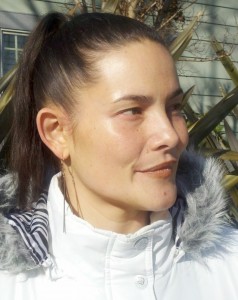
First place: Soma Mei Sheng Frazier [pictured], of San Leandro, CA, wins $1500 for “Everyone Is Waiting.” Her story will be published in the Spring 2014 issue of Glimmer Train Stories.
Second place: Eugene Cross, of Chicago, IL, wins $500 for “Miss Me Forever.” His story will also be published in an upcoming issue of Glimmer Train Stories, increasing his prize to $700.
Third place: Sofia Ergas Groopman of New York, NY, wins $300 for “A Body, Even.”
A PDF of the Top 25 winners can be found here.
2012 Haiku Year-in-Review
Broadsided’s annual Haiku Year-in-Review is now available for download from their website. Readers voted for their favorite haiku to match artists interpretations of four world events from 2012: The Greek Government Bailouts; The Arab Spring; Droughts in the U.S. Midwest; Death of the Last Pinta Giant Tortoise.
“The 2012 Haiku Year-in-Review” broadside features poems by Matthew Caretti, Sarah Martinez-Helfman, Renee Lacroix, Cynthia Gallaher and art by Lochlann Jain, Cheryl Gross, Sarah Van Sanden.
Read, enjoy, download, share!
Online Resources for Higher Ed Job Seekers
This resource comes from the Eastman School of Music at the University of Rochester, so there is some content specific to that field, but it otherwise provides a lot of good, general sources for those looking to get a job in higher education
And this essay from Inside Higher Ed: Questions They Might Ask You by Katherine Ellison and Cheryl Ball.
Rejection of Rejection
Roxane Gay, co-editor of PANK, contributes an essay to the new issue of Kugelmass titled “The Art of the Rejection of Rejection.” She writes about some of the silly and amusing responses she gets from writers who have been rejected from PANK. One writer responds “Thanks for your thoughtful response. I agree the work is one of my weaker efforts, but I had the idea that I might find a place for it if only I set my sites low enough.” Gay writes, “I did not alter his spelling so the irony, as you might imagine, amused me greatly.”
But still some writers respond in a much more melancholy manner; “[the responses] are tough because it’s clear the writer is having some kind of emotional crisis and/or has their self-esteem inextricably bound to their literary success or lack thereof.” But ultimately, it is not up to the editors to make decisions based on how the rejection “might affect a writer’s life.”
Gay rounds out her essay with a statement that I think we can all identify with, whether it is about ourselves as writers or about writers we have workshopped or worked with: “It is fascinating . . . how writers are not able to separate their writing from themselves. They view constructive feedback as a personal attack, a personal insult, an editorial sin that can never be forgiven.”
There are more essays in this issue from Jenny Allen, Sam Allard, and Katherine Spurlock as well as poetry from Edward Curtis, Denise Duhamel and Amy Lemmon, Jessy Randall and Daniel M. Shapiro, David Kirby, Christopher Citro, Mark Cunningham, and Buff Whitman-Bradley and stories from Robert Atwan, Courtney Maum, Sophie Kipner, Dan Pope, Timothy C. Dyke, and Dan Moreau.
Wanted: Assistant Web Administrator and Editors
Red Feather Journal is a growing online, international, interdisciplinary, peer-reviewed journal that provides a forum for scholars and professionals to interrogate representations of children in film, television, Cyberspace, video games, art, photography, advertisement or any other visual medium in which the image of the child is featured. Red Feather Journal facilitates an international dialogue among scholars and professionals through vigorous discussion of the intersections between the child and the conception of childhood, children’s material culture, children and politics, the child body, and any other intersections of culture and the child image within local, national, and global contexts.
Red Feather Journal is seeking interested applicants who would like to be a part of our exciting and diverse group of scholars in the capacity of editor and/or assistant web administrator.
For the editor position we seek applicants who have published scholarly works or established research in the area(s) of film/media studies, or children and childhood studies, or related field.
For the Assistant Web Administrator position we seek applicants with established research in film/media or children’s studies (or related field) and who have web-page design and maintenance experience. Duties include [Assistant Web Administrator] assisting Web Administrator with journal publication and design (published twice a year), and [Editor] active participation in the double-blind peer review process.
Scholars from outside the United States and Graduate Students who are ABD are encouraged to apply.
Interested scholars please send letter of interest, contact information, CV, and one sample publication (or link to a sample) to Debbie Olson, debbieo-at-okstate.edu or dolson-at-uta.edu
Applications will be accepted until January 31st, 2013.
CFS New Online Dev Ed Journal
EDvance is a practitioner-based resource for developmental educators seeking innovative methods of instruction for their classrooms. The journal publishes research-based pedagogy that challenges students to think deeply about their learning in highly creative and imaginative ways. The purpose of the publication is to extend the scope of what it means to teach students of the developmental level.
Submissions: Lessons must be thoughtfully designed and suited for the developmental English classroom. The editors anticipate a careful consideration of scaffolding that would be appropriate for various levels of developmental English.
Passings: Jayne Cortez
The life of poet and activist Jayne Cortez, who passed on December 28, 2012 due to a sudden illness, is honored in this memorial by Howard Mandel in the Arts Journal.
Native Filmmakers Fellowship
Sundance Institute’s Native American and Indigenous Program has created a Fellowship to provide direct support to emerging Native American, Native Hawaiian, and Alaskan Native film artists working in the U.S. The Fellowship is a two-stage development opportunity for filmmakers with short film scripts. The first stage of development is an intensive 5-day workshop, held May 20th – 24th, 2013. During the workshop, Fellows received intensive feedback on their projects from established screenwriters and directors.
Sign Petition for Imprisoned Poet
Michael Rothenberg and Terri Carrion from 100 Thousand Poets for Change are asking supporters to sign an extremely important petition in response to Qatari poet Mohamed Ibn Al Ajami‘s imprisonment for the crime of reciting a poem extolling the courage and values of the popular uprisings in Tunisia. He as been sentenced to life in prison. Read the full petition here.
Rothenberg and Carrion write: “As poets and artists we have a personal stake in seeing this poet released from prison. His persecution is the persecution of all poets and we feel this is something we can’t stand by and watch without taking immediate action. We are very excited by the broad community support we have received thus far and it would be a great honor to have you join us in support of this action by signing the petition and forwarding it to like-minded friends.”
Open Utopia
Does the world really need another edition of Utopia? From Open Utopia creator/curator Stephen Duncombe: “This digital edition of Utopia is open: open to read, open to copying, open to modification. On this site Utopia is presented in different formats in order to enhance this openness. If the visitor wishes to read Utopia online they can find a copy. If they want to download and copy a version, I’ve provided links to do so in different formats for different devices. In partnership with The Institute for the Future of the Book I provide an annotatable and ‘social’ text available for visitors to comment upon what More – or I – have written, and then share their comments with others. Those who like to listen will find a reading of Utopia on audio files, and those who want to watch and look can browse the user-generated galleries of Utopia-themed art and videos. For people interested in creating their own plan of an alternative society, I’ve created Wikitopia, a wiki with which to collaborate with others in drafting a new Utopia. More versions for more platforms are likely to be introduced in the future.”
Behind the Editor’s Desk
With the new issue of Iron Horse Literary Review comes two brand new columns. “In the Saddle” will give a sneak peak into the habits and writing rituals of an author that the magazine editors admire. Since it is the first installment of the column, the editors of Iron Horse decided to go first. To the left is a photo of the editors’ desk, labeled and commented on to the right. While some of the comments are insightful (“Once we accept a manuscript, everyone in the office . . . spends a little alone-time with the piece, copy-editing closely and massaging the writing into its best possible shape.”), other comments are playful: “We complain about our office being windowless. Some folks say, ‘Even if you had a window, you’d just be looking out at a brick wall.’ So we hung a photograph of a brick wall, by Marcus J. Weekley.”
In “Bits & Pieces,” Leslie Jill Patterson talks about how Duotrope has wrongly listed Iron Horse as one of “The Slothful” journals, taking around a year to respond to submissions. After crunching numbers on their own, they showed that their average response time is actually more like one to two months. “For complaining and pointing out that what Duotrope is doing might actually be libelous, was certainly unethical, Iron Horse was booted from their Web site,” she writes. “Fine. I like being a rebel. Let’s see if we can set this thing on fire.” She says that more news about this will be posted on their website and social media sites.
The rest of the issue includes new writing from Carrie Shipers, Charles Hughes, Juan Morales, Abby Geni, Asha Falcon, Mary Jo Melone, and more.
Responding to Tragedy in School
From the National Council of Teachers of English (NCTE): “Literacy teachers, working with community members and educators across a school system, have a special responsibility in the wake of school tragedy. They help students build empathy and understanding through reading literature, informational texts, and multimedia accounts of events in and around their school. They help students gain perspective by learning to place events in cultural, social, and historical contexts. And they help students organize evidence so they can write persuasively about changes that will promote safety, security, and healing.
“In a time where violence and social disruption do not stop at the school house door, NCTE honors the vital work of literacy educators, and all who collaborate with them, to advance learning under the most difficult circumstances.
“We’ve assembled these resources on responding to tragedy in schools for you and your school community.”
– Sandy Hayes, NCTE President
The Gift that Gives to All
If you are reading the NewPages blog, chances are you already consider a book to be one of the best gifts out there (to give or receive). But why not consider another literary gift? A donation in someone’s name to an independent publisher gives on multiple levels:
- You are supporting not just the publisher, but authors (and by extension, readers) as well.
- In some cases, publishers offer books at a certain donation level, so you’ll still have something for your recipient to unwrap. (And if not, buy one of their books!)
- Many independent presses, especially non-profit ones, are heavily involved in the improvement of their communities and dedicate funds to literacy and other programs, both local and worldwide. Your donation can have a far-reaching impact.
Unsure how to choose a publisher to support? Just pick a tactic. Go with the well-known: both Coffee House Press and Graywolf Press are non-profits; Graywolf notes on its site that a $25 donation can provide one of their titles to a high school student, and through 1/15/13, Coffee House is donating 10% of its sales to the worldwide literacy program Room to Read. Or go with a cause near to your recipient’s heart: Kore Press, for example, publishes women’s poetry, fiction, and creative nonfiction, including that of writers underrepresented in the cultural mainstream. They also seek to mentor and support women ages 14-20 with their Grrls Literary Activism Program. Find a press that supports GLBT literature…environmental activism…translations of obscure French poetry; whatever your recipient’s interest, there’s likely a small press that caters to it.
Countless publishers would appreciate your financial support, and any reader would enjoy having that support given in her/his name. And perhaps best of all, you don’t have to go anywhere near a mall.
If you know of other presses like those mentioned, please add a comment about who they are and what they do to this blog post. (Comments are moderated to avoid spam, so give us time to post them.)
Technoculture: The Retro Issue
Technoculture (ISSN 1938-0526) is an independent annual peer-reviewed journal. Publishing both critical and creative works that explore the ways in which technology impacts this (or any) society, with a broad definition of technology.
Technoculture seek creative works that use new media and/or are on the subject of technology, and essays from a broad a range of academic disciplines that focus on cultural studies of technology. Essays published examine the topic “technology and society,” or, perhaps,“technologies and societies.”
For Volume 3 (2013), The Retro Issue, the editors are particularly seeking essays and creative works that focus on lost, ancient, old or dead technologies, technologies that no one uses, or very few people still employ. Topics could include depictions of technologies that treat a wide range of subjects related to the social sciences and humanities. These subjects might include:
- technologies once popular that are no longer used, such as 8-track tape
- film and television as technologies (especially in the early days of television and film)
- celebrities’ use of technology in a given historical moment, such as the early days of television or the heyday of radio
- politics and technology, especially historical approaches
- music production and dissemination, especially historical approaches (such as Listz’ transcriptions of entire Wagner operas and Beethoven symphonies)
- visual artists and their use of (or flight from) given technologies, especially historical approaches
- literary depictions of technologies (especially in works from other decades than our own)
- computer/video gaming (older games, rather than newer games)
- the dissemination of the arts via technology to broad or to specialized audiences in particular historical moments
- the disappearance of a given technology or technologies and what that disappearance/disappearances means/mean for the archival issues that surround the humanities.
- sports and sports figures of the past
- memorabilia and collectibles from the past
In particular, the editors are interested in a conception of “technology” and the “humanist impulse” that pushes beyond contemporary American culture and its fascination with computers; they seek papers that deal with any technology or technologies in any number of historical periods from any relevant theoretical perspective with a particular focus on old, dead and lost technologies for this issue.
Technocluture is not interested in “how to” pedagogical papers that deal with the use of technology in the classroom.
Technoculture will publish scholarly/critical papers in the latest MLA citation style, but also creative works including poetry and creative non-fiction are of interest to us. They will publish art work and especially media designed for display/dissemination on a computer monitor including still images, video or audio.
Submissions for Volume 3 (2013) accepted until 31 August 2013.
Art of Takanori Aiba in Stone Voices
Takanori Aiba’s art is featured in the Winter 2012 issue of Stone Voices. He “creates incredibly detailed tiny worlds using craft paper, plastic, plaster, acrylic resin, paint, and other materials. His work is inspired by his early experiences with maze illustration as well as with the Japanese art forms of bonsai (miniature trees) and suiseki (stone appreciation).”
 The art is truly amazing and detailed; I only wish I could see the pieces in real life. I’m particularly enraptured with the pieces that incorporate the bonsai tree. “My work comes out of my extraordinary, fantastic, and sometimes even chimerical imagination,” he writes. “People believe that my creations are real buildings and spaces because I depict not only the outline, but also all the elaborate details in each piece. I create the side, back, and even the inside of the buildings.”
The art is truly amazing and detailed; I only wish I could see the pieces in real life. I’m particularly enraptured with the pieces that incorporate the bonsai tree. “My work comes out of my extraordinary, fantastic, and sometimes even chimerical imagination,” he writes. “People believe that my creations are real buildings and spaces because I depict not only the outline, but also all the elaborate details in each piece. I create the side, back, and even the inside of the buildings.”
I was also taken with Vincent Louis Carella’s column and photography, “The Little People.” He takes photos of miniature plastic people in the environments around him. “Taking these photos has raised for me a thousand questions,” he writes. “How is it exactly that bodies speak? The language of the human form has no vowels, it defies the tongue and teeth. . . These little figurines speak loudly.” Later he says, “What I’ve discovered is that I overlook so much.”
The rest of the issue includes art portfolios by Kristin Reed and Rae Broyles and features Naomi Beth Wakan, M. M. De Voe, Marsha Bailey Andersen, and David Denny.
Fellowship for Jewish Scholars & Writers
The Posen Foundation is proud to announce a unique international fellowship for junior scholars and emerging fiction writers. Each member of the Posen Society of Fellows receives a two-year, $40,000 award, as well as a special opportunity to collaborate with peers and learn from seasoned scholars and writers.
Eligible scholars should be completing a doctoral dissertation on a topic related to modern Jewish history or culture. Eligible fiction writers should be working on a Jewish-themed novel or short story collection, and should not yet have published their first book.
The inaugural class of Fellows will include six scholars and two fiction writers, who will convene each summer to share work, discuss progress, participate in workshops, and attend lectures by senior scholars and writers. The first gathering of Fellows will take place August 11–13, 2013, in Berkeley. Each Fellow will be expected to attend two annual gatherings, and, later on, to submit a report on their progress and adapt their work for a public audience.
To be considered for the Society, scholars must submit a dissertation prospectus, a writing sample of no more than 15 pages, a letter of recommendation from a major advisor, and a curriculum vitae. Scholars must have completed their comprehensive exams or have commenced writing their dissertations by April 1, 2013.
Writers should submit a writing sample (for novelists: 30-40 pages of prose; for short story writers: two or three completed stories), curriculum vitae, a description of the work in progress, and an explanation of how the writing sample fits into the larger work.
The Posen Society of Fellows is not restricted to any religion or nationality. Participants from outside North America should be in possession of valid visas.
Best of the Best Essays
In an article for Publishers Weekly, Robert Atwan, the founder of The Best American Essays series, picks the 10 best essays of the postwar period. Six of the essays are available to read full-text online, and one via subscription (New Yorker).
Tin House and Octopus Collaborate on New Poetry Series
Tin House Books and Octopus Books have announced a new collaborative poetry series. Acquiring titles in the new line will be Matthew Dickman, poetry editor of Tin House magazine, and Zachary Schomburg, editor at Octopus Books. First in the series will be Brandon Shimoda’s Portuguese. The two editors discuss the reasons for the new collaboration in their editors’ note:
“We represent two different types of small presses, with two different aesthetics, and two different audiences, but we’re both based in a city [Portland, Ore.] that has a palpable collaborative energy that is proving itself every day. And at a time when many larger presses are thinning their poetry rosters, we wonder if publishing collaboratively is a model that presses are missing out on, a model that smaller independent presses are capable of, because there is nothing to lose in teaming up to publish books for a multiplied and overlapped audience. This is a model that is necessary for a new kind of conversation to begin, not to see how we can meet in the middle, but how we can meet at the edges.”
Portuguese will be published by Tin House Books and Octopus Books on March 12, 2013 and distributed by Publishers Group West. Shimoda is the author of three previous books of poetry and is currently coediting, with poet Thom Donovan, a retrospective collection of writing by Lebanese American poet Etel Adnan (Nightboat Books, forthcoming).
In 2014, Tin House and Octopus will again collaborate to publish Bianca Stone’s new collection, Someone Else’s Wedding Vows.
Interview :: Juliana Spahr
“I often wish [poetry] was more didactic. I like it to mean things, I confess.”
Juliana Spahr talks to Full Stop about historicized reading in the classroom, academic labor, and Meaning as part of the series Teaching in the Margins. With Teaching in the Margins, Full Stop looks to poets, novelists, educators and academics to survey the state of the humanities and explore the relationship between innovative writing and pedagogy.
You can find the interview here.
Latinos in Children’s Literature
The New York Times blog City Room provides a reading list of children’s books with Latino characters in response to an article published in the NYT questioning: Where are all the Latinos? Aurora Anaya-Cerda, owner of La Casa Azul bookstore in East Harlem, provided the list, and readers are invited to continue contributing their selections via the comments.
NANO Fiction Prize 2012
In the fall 2012 issue of NANO Fiction, the 2012 NANO Prize is announced and printed: “Hand Over Hand” by Patrick Swaney. The judge, Ryan Call, says, “While I read several entries that struck me for their unique presentation of the form, I loved how simply and unexpectedly the turns of the winning story occurred. . . . Swaney has quickly shared with us yet another brief, awkward interaction between strangers.”
Other contributors to this issue include Selena Anderson, Garrett Ashley, Lauren Becker, S.G. Childress, Jasmine Dreame Wagner, Nicolle Elizabeth, Bryce Emley, Kendra Fortmeyer, Gabrielle Lucille Fuentes, Scott Garson, Elisabeth Geier, L.P. Griffith, Elise Hunter, Simon Jacobs, Jason Joyce, Benjamin King, Kenneth Kronenberg, Emily Link, Maxim Loskutoff, Dan Lundin, Sam Martone, Rupprecht Mayer,John A. McDermott, Nicole Miller, John Poch, Alexis Pope, Michelle Reale, C. R. Resetarits, Scott Riley, Matt Sailor, Jared Yates Sexton, Patrick Swaney, Anthony Varallo, Mark Walters, Zack Wentz, A. Werner, and Gregory Zorko.
New Lit on the Block :: The Golden Key
NewPages is happy to welcome yet another new, online magazine—The Golden Key. Publishing fiction and poetry twice a year, the magazines is available online and in PDF form for free. The magazine publishes speculative and literary writing, stories and poems that “grip,” “enchant,” and “enthrall” the editors.
The name of the magazine is inspired by the Grimm’s fairy tale by the same name. Co-Editor Susan Anspach says that the story “concludes with a boy lifting the lid of a little iron chest before revealing to readers what the chest contains. The Grimms,” she continues, “chose to end their collection of fairy tales with this story as a reminder that there exists an endless reserve of stories still yet untold. In the same spirit, our journal seeks to publish work that is open to strange and marvelous possibilities.”
During her MFA program at University of Maryland, Anspach met Co-Editors Carlea Holl-Jensen and LiAnn Yim. They were all reading a lot of speculative and strange work. “We were excited to share our fascination with the weird and the oft magical, and we knew we wanted more of it,” Anspach says. Thus, the magazine was born.
But compared to some other online magazines, this magazine will remain digital. The editors don’t have hopes of eventually turning it to a print publication because they wish to make “the best digital imprint [they] can.” Anspach says that this will help keep the costs low so that they can eventually pay their contributors.
The poems in the first issue include “Let’s Hurt” by Cat Richardson, “My Son to His Therapist:” and “Daughters of the Spindle” by Mary Elzabeth Lee, “Song of Solomon” by Maya K Lowy, “You tell me” by M.S. Rooney, and “dream, tiger” by Nancy Chen Long. The fiction includes “Bones” by Sylvia Linsteadt, “Fetching Whiskey Bill” by Lily Bruzas, “The Wooden Frame” by Alexander Gifford Howard, “Trail of Stones” by Adam Smith, and “Duplicator” by James D. Reed.
Every issue of the magazine is themed. The magazine accepts submissions via email starting Jan. 1 and running through March 31 for the next issue. You can follow The Golden Key on Facebook and Twitter (@GoldenKeyLit) for announcements on submissions, issue themes, and release dates.
International Human Rights Day
In honor of International Human Rights Day (today), Jersey Devil Press is publishing a special one feature issue, featuring Robert Buswell’s “How I Upstaged Anne Frank.”
“No, Jersey Devil Press has not gone overtly political. (And hopefully never will)
So why are we publishing this story? Three reasons.
First, one of our missions at JDP is to publish stuff that deserves to be published that a lot of other people won’t touch. We like being the indie lit community’s Isle of Misfit Toys. Sometimes that means publishing a novella about poo-eating aliens. Sometimes it’s a story about peeing on a magical unicorn. And sometimes, it’s something a lot, lot darker.
Second, we think we have a thoughtful readership that can handle this story, that can see why we had to publish this incredibly dark piece of satire once it was submitted to us.
Third, and perhaps most importantly, we’re publishing this because it’s about something truly awful that actually happened to a real person. As we weighed the pros and cons of publishing this, that’s the thing that kept coming up: the chance to give a voice – even a satirical one – to a woman who died young and horribly.
And that’s why we decided to publish this story even though it violates many of our guidelines and particularly the one about rape. (We probably should say TRIGGER WARNING, by way of preface.)
It’s not an easy read, by any means, but we do think it’s a worthwhile one.”
Hunger Mountain 10th Year Anniversary
Ten years ago, with the fall issue of 2002, Hunger Mountain lit mag was born. To honor their anniversary in the Fall 2012 issue, Hunger Mountain asked past contributors and editors to make lists of ten things, any kind of list they wanted. Here are some of the lists:
Robin Black: 10 spaces in my ideal home
Abby Frucht: 10 names for men’s hair dyes
Sascha Feinstein: 10 possible engravings for the tombstone I won’t have
Jewel Parker Rhodes: 10 books that I share with my kids
Bruce Smith: 10 songs with chicken in the title
Gish Jen’s daughter and friend, age 13: 10 things not to eat while reading
These lists and more can be read in the Fall 2012 issue along with new writing from Kirsten Clodfelter, Clarence Lai, Donald Quist, Gary Moore, Suzanne Parker, Jesse Damiani, Katherine Hollander, Muriel Nelson, Ellen LaFleche, Steven Harvey, Pam Houston, Sally Derby, and many more.
K-12: Which Literature to Cut?
Washington Post article on the new common reading core in K-12:
Excerpts:
The Common Core State Standards in English, which have been adopted in 46 states and the District, call for public schools to ramp up nonfiction so that by 12th grade students will be reading mostly “informational text” instead of fictional literature.
…
English teacher J.D. Wilson agrees with much of what the standards aim to accomplish. But he is disturbed by the subtle shift the new standards are already causing in his classroom at Wareham High School in Wareham, Mass. “Reading for information makes you knowledgeable — you learn stuff,” Wilson said. “But reading literature makes you wise.” Wilson has wrestled with which poems to cut from his lesson plans and which nonfiction to teach instead. And then he hit upon an idea. This fall, he has taught “Literature Is Not Data: Against Digital Humanities,” “Shakespeare, a Poet Who Is Still Making Our History” and “Who Killed the Liberal Arts?” They are all essays that emphasize the value of literature.

